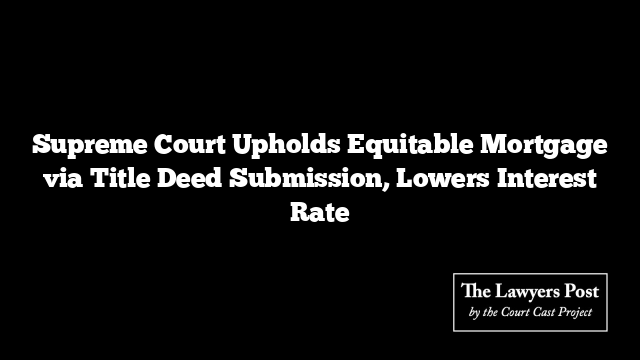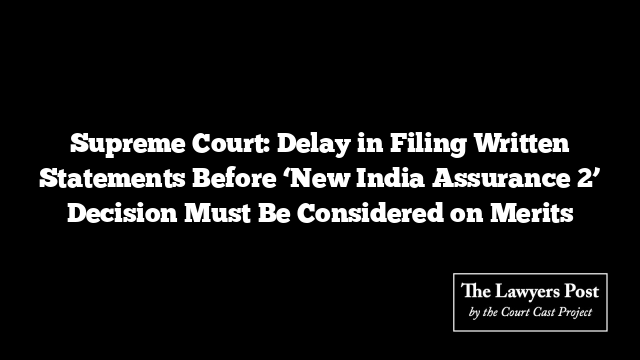The Supreme Court has ruled that presenting property title deeds as security for a debt establishes an ‘equitable mortgage’ under Section 58(f) of the Transfer of Property Act, 1882 (TPA). This judgment was rendered in a case where the respondent, after securing a loan from the appellant, handed over the title deeds of a property as collateral but failed to execute a sale deed in favor of the appellant when required.
The appellant sought legal recourse through a civil suit in the Madras High Court, arguing that the respondent’s submission of the title deeds constituted an equitable mortgage. Initially, a Single Judge sided with the appellant, affirming that the title deeds created a valid mortgage. However, a Division Bench later overturned this decision, stating that the appellant had not adequately demonstrated the existence of a mortgage agreement.
The Supreme Court, upon reviewing the appeal, reinstated the Single Judge’s decision, emphasizing that the initial judgment had correctly interpreted the agreement between the parties. The Court clarified that such an agreement, which merely documents an already completed transaction, does not require registration under the Registration Act, drawing on the precedent set in State of Haryana v Narvir Singh.
While the Supreme Court upheld the equitable mortgage, it did reduce the interest rate on the outstanding loan from an excessive 36% per annum to a more reasonable 12% per annum, effective from June 24, 2000, until the debt is fully settled. This adjustment was made in the interest of justice.





